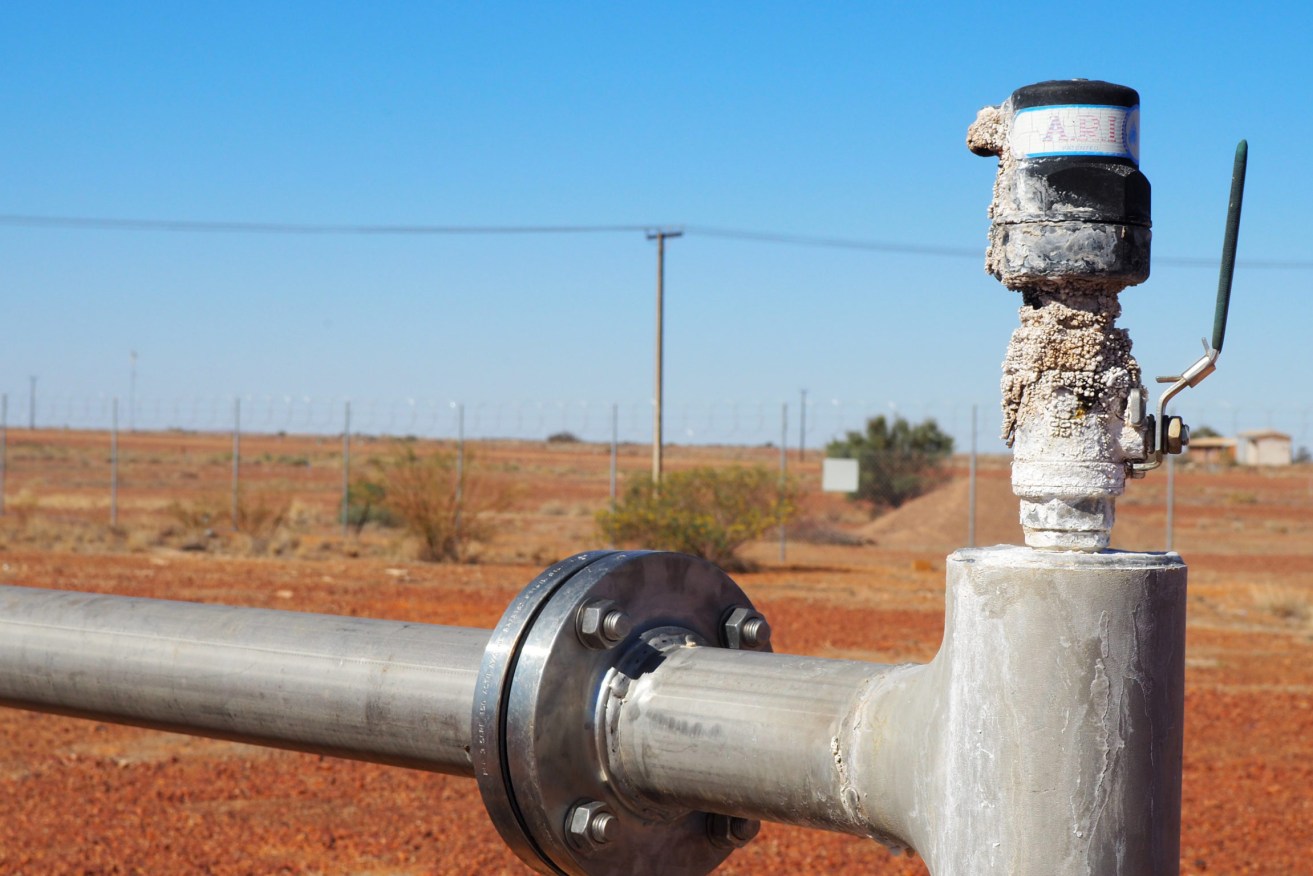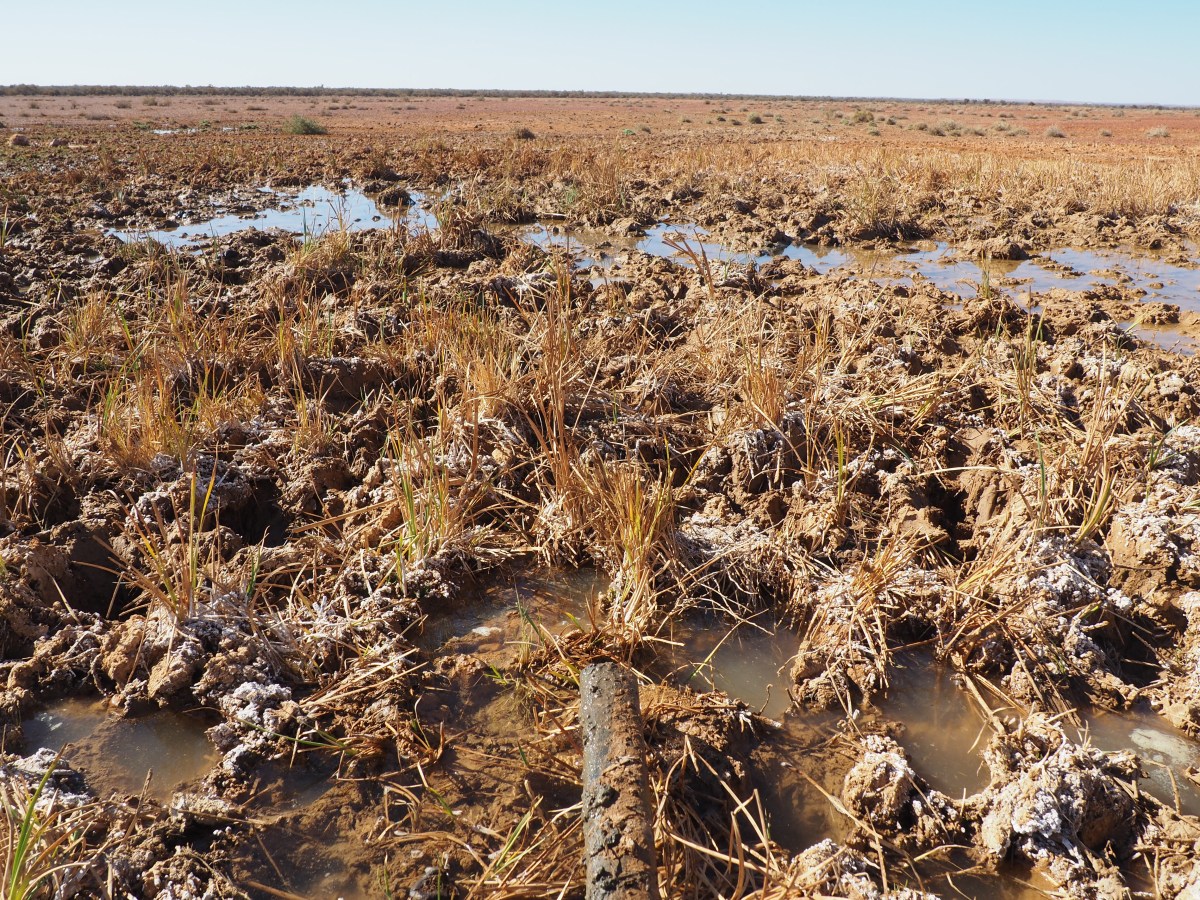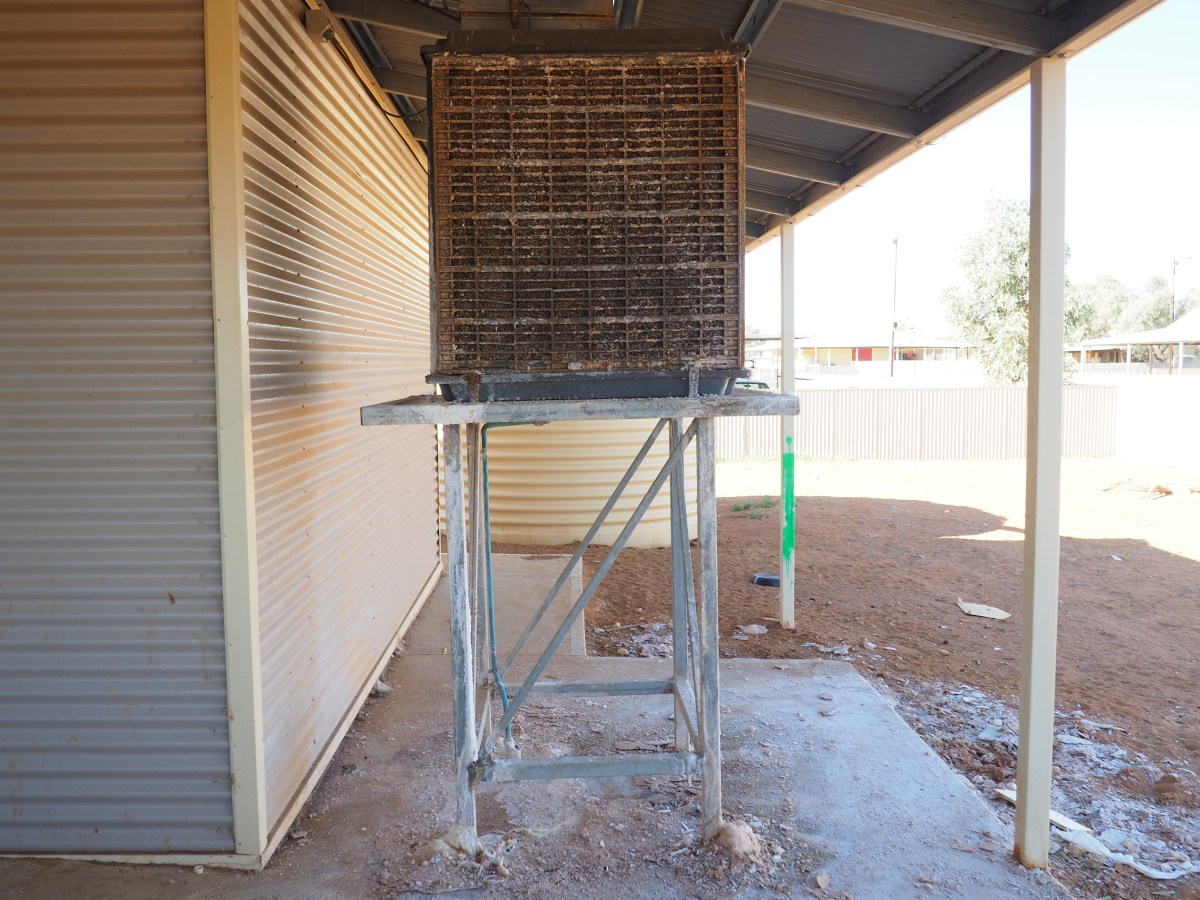Safe drinking water for remote SA back on table
The State Government will examine water supply issues facing remote South Australian communities, after the independent regulator flagged it would reject SA Water’s proposal to supply them with safe drinking water.

A corroded tap connected to the Oodnadatta town bore. Photo: Stephanie Richards/InDaily
The Essential Services Commission of SA (ESCOSA) yesterday rejected the proposal, estimated to have cost up to $200 million, to supply water treatment infrastructure to remote towns as a “partial solution that provides limited incremental benefits to a small number of customers at a very high cost” in its draft SA Water regulatory determination.
The decision leaves residents in remote towns such as Oodnadatta, which is currently supplied with non-drinkable and potentially fatal bore water, with no indication of when they will have access to safe, potable water.
In response to questions from InDaily after ESCOSA’s rejection, a State Government spokesperson said a cross-government working group had been convened “in recognition of the challenges facing many remote communities in providing a secure and good quality water supply to their residents”.
“The working group is looking into water supply issues in remote communities, including Aboriginal communities, and will develop options for a consistent, sustainable policy approach.”
The group is chaired by the Department for Premier and Cabinet and includes representatives from SA Water, Regions SA, the Office of Local Government and the Departments for Environment and Water, Treasury and Finance, Health and Wellbeing and Primary Industries.
There are 650 properties across 19 communities in regional South Australia without a drinkable water supply.
SA Water has prioritised Oodnadatta, in the state’s far north, as the first to receive upgraded water treatment infrastructure under its proposed $37.7 million four-year plan.
But the Customer Negotiation Committee estimated the plan could cost in the order of $200 million to supply all 650 properties.
SA Water said its customers – not the State Government – were happy to pay extra to fund the work if it received the go-ahead from ESCOSA.
In its draft determination ESCOSA said it was not “prudent” to approve the proposal as “the broader matters of where and how potable water supplies are provided and funded are matters of South Australian Government policy”, and not the responsibility of SA Water customers.
“The Commission agrees that these are matters of South Australian Government policy, and will, where appropriate, liaise with the South Australian Government to help inform policy development regarding SA Water’s obligation to supply, and where and how potable water supplies are provided and funding,” the determination states.

A white salt-like substance covers the ground near the Oodnadatta bore. Photo: Stephanie Richards/InDaily
SA Water will seek to challenge the determination during the next round of consultation, with General Manager of Customer Delivery Kerry Rowlands saying: “We… need to understand if we could have better communicated the proposed regional and remote water quality improvement programs that were not included in the draft determination – while a metropolitan one was – despite our customers confirming a clear sense of equity and fairness, and specific support for these initiatives”.
Asked yesterday to respond to ESCOSA’s decision, Treasurer Rob Lucas said “the honest answer is I’ve not yet been into all the detail in terms of those implications”.
“We’ll take advice from SA Water, regional communities and others in relation to the draft determination and SA Water will obviously make a submission in relation to – I don’t know that particular issue but the whole determination.”
Lucas said the Government “would have to consider” whether it would be open to funding water treatment infrastructure for remote towns once ESCOSA handed down its final determination in May.

Airconditioning units in Oodnadatta are mostly corroded due to the poor water quality. Photo: Stephanie Richards/InDaily
Meanwhile, residents in Oodnadatta remain exposed to potentially toxic non-drinking bore water.
SA Water has – since the 1990s – warned Oodnadatta residents not to drink the bore water as it may contain the parasite naegleria fowleri which, when inhaled, causes a rare but almost always fatal brain infection.
Water testing data obtained by InDaily through a freedom of information request last year showed the town’s mains water had, over the past decade, consistently exceeded national drinking water guidelines for recommended chloride, sodium, sulphate and total dissolved solid levels.
The SA Housing Authority has also warned Oodnadatta residents against drinking what it calls “undrinkable” and “unfiltered” rainwater, as the tanks provided at its leased properties are not intended to supply drinking water.
The situation leaves Oodnadatta residents to choose between drinking the questionable bore or rainwater, buying expensive bottled water, or taking containers to a clean water outlet set up in the town’s main street, which the State Government says is mainly for passing tourists and which costs $4 for 20 litres.
The United Nations considers it a basic human right to have access to clean water and sanitation at an affordable price.
Lucas yesterday said that he was “sure” that the “local member and various ministers have over recent times been there (to Oodnadatta) and had discussions” about the water quality concerns.
Water Minister David Speirs did not respond to questions from InDaily asking if he had visited Oodnadatta or spoken to its residents about their water supply.
InDaily contacted local member and shadow Regional Development Minister Eddie Hughes, shadow Aboriginal Affairs Minister Kyam Maher and Federal Greens senator Sarah Hanson-Young for comment, but no responses have been received.
The public has until April 15 to provide feedback on ESCOSA’s draft determination.
Want to comment?
Send us an email, making it clear which story you’re commenting on and including your full name (required for publication) and phone number (only for verification purposes). Please put “Reader views” in the subject.
We’ll publish the best comments in a regular “Reader Views” post. Your comments can be brief, or we can accept up to 350 words, or thereabouts.




